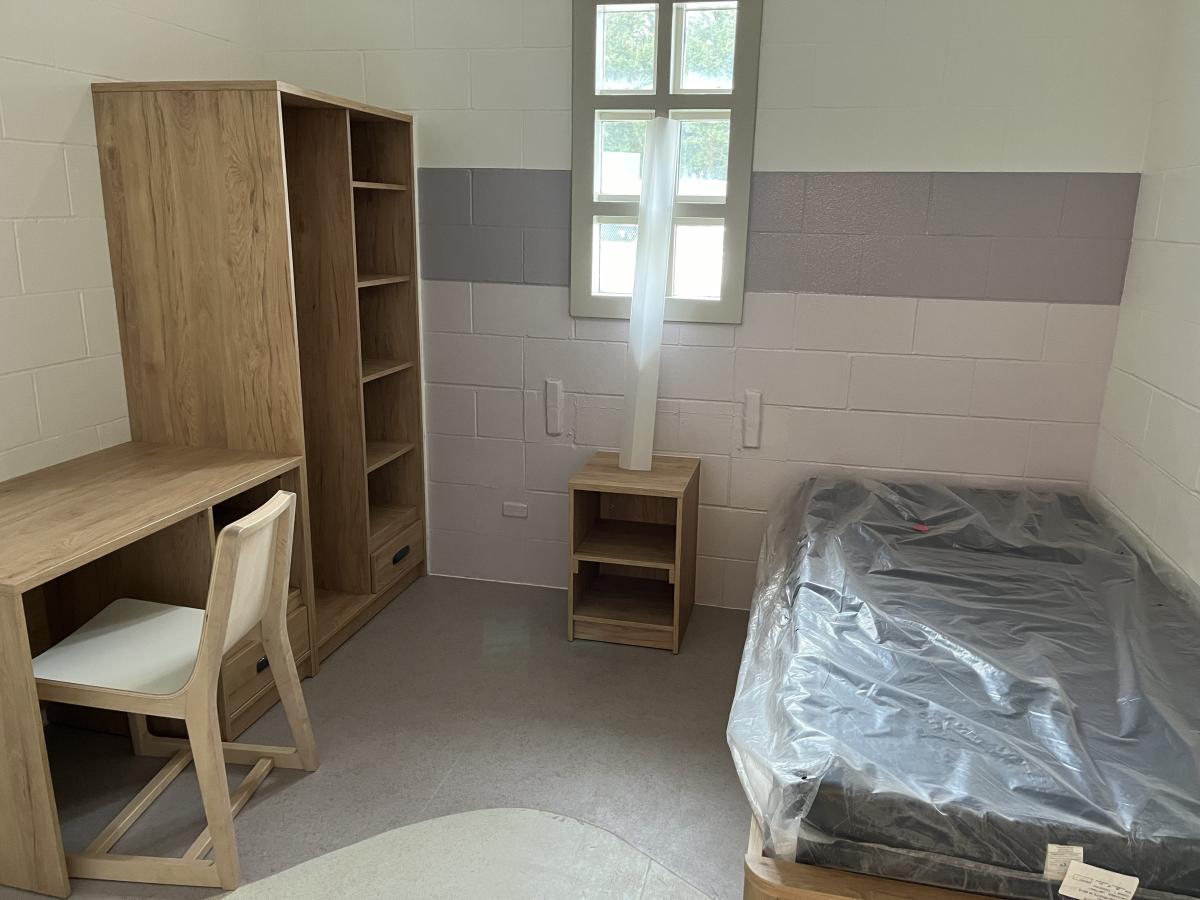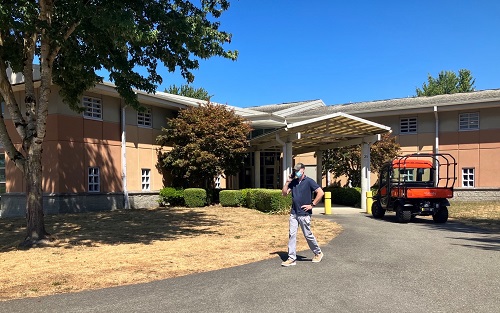The Maple Lane Columbia Unit located near Grand Mound serves 30 not guilty by reason of insanity residents. Our commitment is to create a safe and secure therapeutic treatment facility where residents can get the treatment they need and be the best neighbors we can be in the community. This facility provides patients with new opportunities and experiences outside of a hospital setting and helps better prepare them for their eventual transition into the community.

Latest News
Retrofitted unit on Maple Lane Campus begins accepting new patients
The Maple Lane Columbia Unit opened in February 2024. We are currently seeking to hire multiple staff positions in various roles ranging from entry-level experience and education to managerial and senior-level positions. If you’re interested in joining our team, please apply at this link:
Our residents

Our mission is to treat people in need of inpatient psychiatric care who have been found not guilty by reason of insanity and have made substantial progress in their treatment. Columbia Unit helps provide a therapeutic pathway for residents to further progress in their treatment.
Our program
Columbia unit is a highly secured environment with procedures/processes unique to this facility. All residents at Columbia Unit will participate in daily active psychiatric treatment which is ordered by a physician and individualized to clients’ particular treatment needs and reasons for admission. Each resident works closely with a multidisciplinary treatment team that includes staff from psychiatry, pharmacy, psychology, nursing, rehabilitation, and social work.
Columbia Unit offers a wide range of group treatments, many of which are evidenced-based practices. Additionally, Columbia Unit offers groups to help increase residents’ mental illness symptom management, vocational opportunities, and recreation.
Residents progress through a privilege system that offers them greater responsibility as they advance in their treatment. However, as they advance in the Columbia Unit privilege system, they will be able to earn increased unsupervised walks within secure campus areas. Residents are regularly being assessed for safety before exercising ground or on-campus privileges.
Facility plans

Columbia Unit is a previously owned and operated Department of Corrections facility that was used as a juvenile detention facility. It has been renovated and retrofitted to increase therapeutic elements. Taking a trauma-informed approach to the renovation, many updates to the facility are the result of feedback from Western State Hospital staff and NGRI patients who took part in the planning process. Things such as color palettes, furniture, art, and decor were considered with their collaboration in the planning process.
Security
Entrances and exits are controlled by staff. The outdoor spaces for the residents are enclosed by fencing and the buildings. The facility also has agreements with local law enforcement to assist as needed. Staff are trained in de-escalation strategies and emergency management processes to minimize calls to law enforcement and the fire department.
No services are provided for people who are not living at the facility. This is a closed campus with no public restrooms, shelter services, or behavioral health services that can be accessed by the public. This is a controlled secure environment with a specific population serving people committed or adjudicated to DSHS’s care and custody to provide inpatient treatment. Visitors are limited to friends and family and must be scheduled.
Any planned trips off-campus by residents include staff members as escorts. Offsite trips might consist of trips to the local hospital, medical appointments, or housing appointments.
FAQs
Q. What does it mean to be a resident who is not guilty by reason of insanity?
A. A defendant is found not guilty by reason of insanity (NGRI) when the defendant was either not able to perceive the nature and quality of the act or not able to tell right from wrong concerning the particular act in which they are charged. People found NGRI are typically people who were experiencing severe symptoms of mental illness at the time of the offense, gravely impairing their capacity to perceive reality or think coherently. For example, the defendant might describe suffering from delusions or hallucinations that directly led them to commit the alleged crime. If the court finds the person NGRI, then the person is either remanded to the custody of DSHS or released to the community. Persons remanded to DSHS custody, will be admitted to an NGRI treatment program.
Q. Can NGRI residents go into the local community on escorted day trips?
A. In 2010, a series of new state laws added restrictions to the release process for NGRI patients. The new laws generally required the NGRI patients to obtain a court order to leave a treatment facility, including for family visits or taking a walk off of facility grounds, even if doctors recommend this for treatment and recovery. These laws also created the Public Safety Review Panel—an advisory panel composed of a psychiatrist, a psychologist, a prosecutor, a law enforcement representative, a consumer and family advocate representative, and a public defender. This panel provides an additional layer of review before NGRI patients are permitted to leave the secure areas of state behavioral health treatment facilities.
Q. What policies and laws govern the treatment of NGRI residents?
A. The NGRI process is outlined in RCW 10.77. Because the changes in the law delayed the treatment and recovery process, plaintiffs brought the lawsuit to the Ross Settlement which aimed to ensure timely clinical decision-making while respecting the safety of patients and the public. Although a federal court since dismissed the case after DSHS greatly improved its policies, the Ross settlement resulted in both state psychiatric hospitals having either updated or created new policies that address multiple areas to include individualized treatment plans, reinstating ground privileges, and a privilege system.
Have a question? Submit it here.
